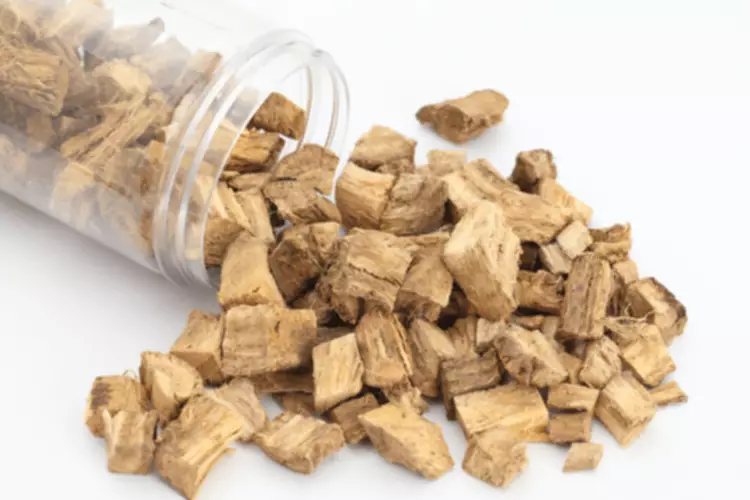Content
In general, heavy drinkers who are physically addicted to alcohol and/or those who have suffered serious alcohol-related problems are better off not drinking at all, as moderation is less effective. It is also not intended for formerly dependent drinkers (i.e., alcoholics) who have been abstaining. Although moderation may be a good starting point for many drinkers, it is not the best approach for everyone with a drinking problem. People with severe drinking problems generally find moderation difficult to maintain and often do better with abstinence. There are many different pathways to success, and the key lies in finding which particular pathway works best for each person. If you don’t consider yourself an alcoholic or don’t feel comfortable labeling yourself one, practicing moderation helps you avoid having that discussion when you’re not in the mood.
Abstaining is the most traditional treatment method surrounding drug and alcohol abuse. This method involves completely avoiding substance use and abuse. While abstinence has long been held as the only way to resolve an addiction problem, and it may be highly effective when achieved, actually reaching the goal of abstinence seems to be the biggest problem. Typically, the first thing that comes to mind when thinking about addiction recovery is how to quit using or abusing a substance forever. There are proponents of another theory though, that one can control addiction through moderation management (MM) behaviors, and there is evidence to support this theory, too. A review of 30 studies published in 2020 found that combining CBT with medical drug treatment for alcohol use disorders and substance abuse provided increased benefits.
An unique alternative to abstinence-only programs
Non-alcoholic wines are an excellent solution for anyone looking to make positive changes without sacrificing their enjoyment. Treatment from a professional is an appropriate option for alcoholics. Anyone struggling with alcohol dependence or substance abuse should consult with a qualified professional such as a doctor or a therapist. When you quit drinking for thirty days, you can enjoy the health benefits of not drinking alcohol.
- Alcoholics Anonymous and other abstinence-based programs view moderation management as too flexible to provide lasting benefits.
- Discover how to trust yourself and feel truly powered to take it or leave it.
- Abstinence and moderation both have pros and cons; however, moderation would seem to be the more difficult option for one main reason.
- These health risks can be severe, and some even contribute to alcohol-related mortality rates.
- However, most alcohol treatment programs are designed for people with the most severe drinking problems.
For years, the answer was assumed to be no, there is no room for “just one drink” for anyone with a drinking problem. Today, there are programs like Moderation Management, which do allow for a certain level of controlled drinking and have helped many learn to drink safely. In addition to making my family forever suspicious of anyone in uniform, the experience sent three out of the four members of my nuclear family straight into substance abuse.
Mental Health Interventions & Moderation Management
If your reason for choosing abstinence is simply that you want to, that’s a perfectly valid reason to quit alcohol altogether. Shame and guilt over a slip-up can trigger full relapse. When people aiming for abstinence make a mistake, they may feel like quitting is impossible and give up entirely.
Is moderate drinking better than abstinence?
When is abstinence a better choice? Although moderation may be a good starting point for many drinkers, it is not the best approach for everyone with a drinking problem. People with severe drinking problems generally find moderation difficult to maintain and often do better with abstinence.
You can have an occasional drink without feeling defeated and sliding deeper into a relapse. It’s easier to maintain your motivation and stay on the right track. This word “abstinence” can be an intimidating word to many, especially those in the early stages of recovery. Your whole body may convulse saying, “I’ll do anything, just don’t ask me or tell me that I have to stop forever.” This is normal. If this is how you feel, commit yourself to being open to new ideals and beliefs that may result in a healthier and more fulfilling lifestyle.
Prevention Starts with All: The Chris Herren Story
There are plenty of celebrities and regular people alike who practice sobriety and were never alcoholics. For many, it’s a way of life that aligns with their values and health goals. Non-alcoholic products are available for the sober curious drinkers looking to try moderation or an abstinence-based approach.

Strictly Necessary Cookie should be enabled at all times so that we can save your preferences for cookie settings. But moderation disconnects you from all of that because it focuses on a number instead of tuning into your body and how it feels. Because what you try to do with moderation is you try to follow a rule rather than listening to your body’s response in the present moment. So whether it is the CDC issuing health guidances or Weight Watchers telling you, hey, this is how many points you can spend on alcohol without gaining weight, we are constantly bombarded with this information about the right amount.
Set Attainable Goals
She admitted she was dependent on alcohol and started seeing a counselor. There is a saying that goes, “All things in moderation.” The idea is that so long as you are moderate it’s okay to try anything. The more accurate saying alcohol abstinence vs moderation is, “All things permissible in moderation,” since some things like cruelty, poison, adultery, etc., don’t gain acceptability or digestibility through moderation. And if you don’t know how to do that right now, that’s okay.
- There are proponents of another theory though, that one can control addiction through moderation management (MM) behaviors, and there is evidence to support this theory, too.
- AA says that alcoholics should seek proper treatment and be aware of the risks that moderation management approaches can present.
- Some pregnant women might think that moderation management is a way for them to consume alcohol.
- Abstinence may not be a realistic solution with some addictions, such as eating and in some cases sexual addictions.
A moderation approach may be recommended for those who prefer a gradual approach to progress. Here are additional reflection questions from a therapist to help you understand your own relationship with alcohol, and if moderation meets your needs and preferences. Take our short alcohol quiz to learn where you fall on the drinking spectrum and if you might benefit from quitting or cutting back on alcohol. However, moderation doesn’t work for everyone who struggles with alcohol.
The potential benefits of quitting, at least temporarily
When you say, for example, “No more drinking under any circumstances,” you know when you’ve violated that rule. If, on the other hand, you say, “Only moderate drinking from now on,” suddenly, you’re in murky waters. You have to put a lot of mental effort into it and the line between success and failure is always moving, usually to accommodate more drinking. When you’re rule is abstinence, you know immediately when you’ve crossed the line. I don’t call that abstaining, and again, it’s not semantics.

In 2013, 8,260 people died following the use of heroin in the United States.[7] Thus, moderation management can be dangerous when used to end certain drug habits. Believe it or not, abstinence isn’t the only path people try to take to sobriety. While it may sound like a bit of an oxymoron, some believe that addicts and substance abusers can achieve sobriety while still drinking alcohol or using drugs on occasion. Drinking in moderation can teach individuals better drinking habits without eradicating alcohol from their lives.
While your relationship with alcohol is entirely personal, reflecting on outside influences can be helpful when considering the relative benefits of sobriety or moderation. These influences may include family dynamics, workplace culture, friendships, strained relationships, and lifestyle https://ecosoberhouse.com/article/why-is-my-vision-blurry-after-drinking-alcohol/ elements. First of all, as mentioned earlier, don’t make a commitment until you are firm in your path to sobriety. Second, realize a commitment to sobriety is not a commitment to be forever perfect. Before you consider that to be a SMART Recovery®
license to relapse, it is not.
Should you drink in moderation or abstain completely?
Moderation is a nice goal, but based on your physical health, mental health, and addiction history, it may be unsafe or impossible to maintain. Abstinence is tough to achieve, but with support and coping skills, it may be the best option for you and your loved ones.
